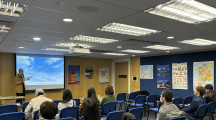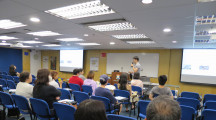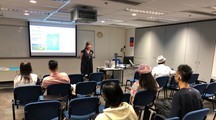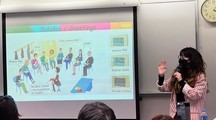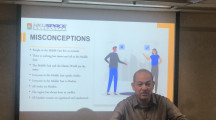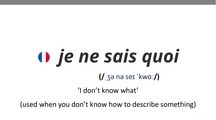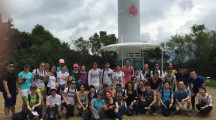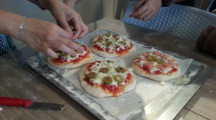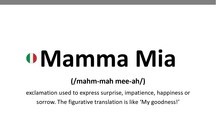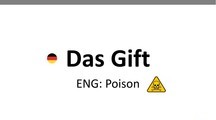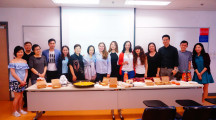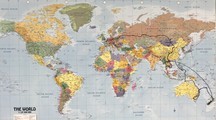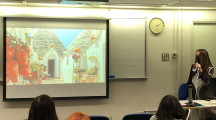
Languages European
Why French/ Spanish/ German/ Italian/ Portuguese/ Latin/ Arabic/ Polish/ Swedish/ Russian@HKUSPACE
European
Welcome to our European Language website.
Our main languages are Spanish, French, German, Italian and Portuguese, but we do also offer courses in other languages such as Arabic, Greek, Latin, Polish, Russian, Swedish, Finnish and Dutch.
Our award-bearing courses, which last 120 hours each, are mostly CEF-certified, with well-developed curricula and assessment systems which cover various aspects of the European languages including reading, writing, listening, speaking, grammar and vocabulary.
Besides, we have shorter courses of just 30 hours, more casual and non-exam based, such as courses for travellers or for beginners, courses in the mornings or during the weekends.
Finally, you can´t miss out on our fun workshops, such as Italian Fashion, Food and Drink, Cooking courses and our several cultural gatherings during the year for each of our main languages!
Our teachers are passionate and committed to the language learning and will guide you through your journey at HKU SPACE!
European Programmes
- Sort by
- Programme Title
The programme is equivalent to A1 level in the Common European Framework of Reference (CEFR).
The programmeaims to:
- Introduce students to very simple phrases and sentences used in basic conversation.
- Teach students the very basic grammar and vocabulary needed for very simple communication.
- Provide students with the techniques needed to listen with confidence to simplified, everyday dialogues when spoken very clearly and slowly.
- Introduce students to some aspects of German-speaking cultures such as food and drink, greetings, festivals and places.
- Enable students to extract information from very simple written texts such as forms and menus, and to write very short, simple emails and fill in information on a form.
- Introduce students to simple phrases and sentences used in basic conversation, e.g.: introducing oneself, saying hello, reserving a hotel room, ordering food and drink, talking about your job, finding your way around town, talking about likes and dislikes and holidays.
- Give students the basic grammar and vocabulary needed for simple communication, e.g. present tense forms, adjectives, articles, basic modal verbs (e.g. poder and dever), and prepositions of place.
- Provide students with the techniques needed to listen with confidence to simplified, everyday dialogues when spoken clearly and slowly.
- Introduce students to some areas of Portuguese culture such as food and drink, greetings, festivals and places.
- Enable students to extract information from very simple written texts such as forms, menus and short, simplified articles. Also to write short simple postcards and fill in information on a form, e.g. hotel registration form.
This course covers the content of the A2 level in the Common European Framework of Reference (CEFR).
By the end of the programme, students should be able to talk about various topics in a more detailed and fluent way , write different types of texts regarding more abstract and cultural matters, summarise the main ideas when listening to clear speeches or reading a wide range of texts.
- Increase students’ confidence to deal with everyday spoken situations, e.g. talking about your home, talking about free time activities (e.g. food, sport and travel), discussing work and jobs and making simple phone conversations.
- Consolidate and build on the basic grammar learned in the first year, future and conditional tenses, past tenses, comparative and superlatives and gerund and participle.
- Enable students to write a short simple letter or email and to complete a simple curriculum vitae in a given format. Also to take down simple notes on a telephone conversation.
- Build students’ confidence while listening so that they can demonstrate an understanding of the main point in short simple messages and everyday conversations, e.g. when listening to information about family, the local area and hobbies or when listening to basic information on the telephone.
- Introduce students to some important areas of Portuguese culture, e.g. culinary specialties, regions of Portugal and Portuguese-speaking countries, housing, industry (e.g. tourism and fashion).



